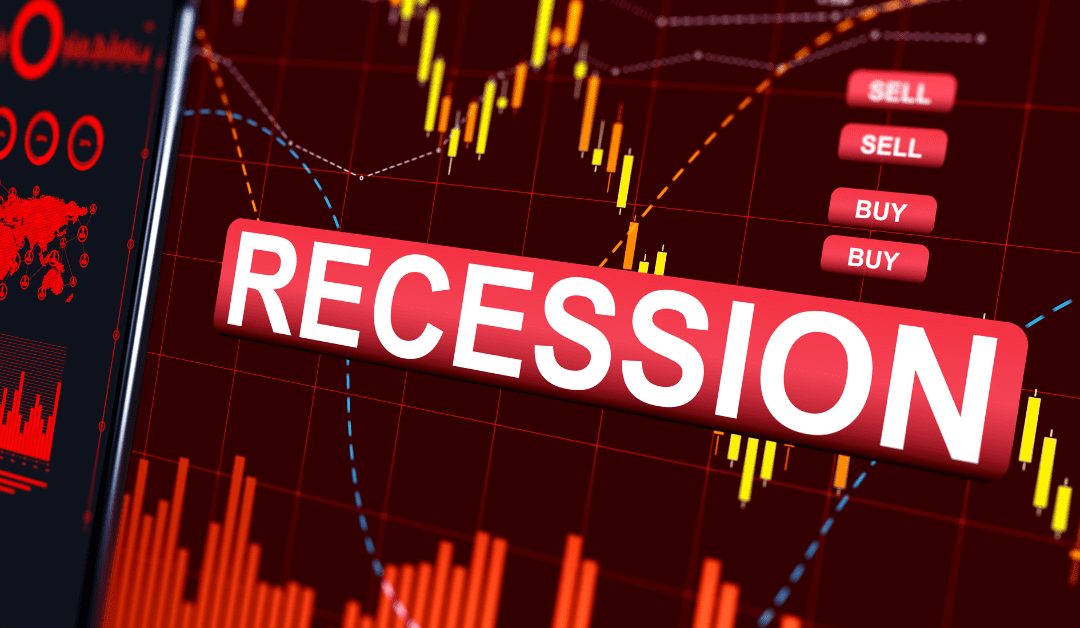What is a recession?
What is gross domestic product?
How does a recession affect me?
In recent months the UK, as well as many other countries around the world have been experiencing high levels of inflation. This has led to many central banks and governments utilising policies such as raising interest rates, reducing quantitative easing (printing of money) and tightening spending in an effort to reduce inflation.
The main objective of these measures is to reduce the ability or desire for individuals or companies to spend, i.e reduce demand. If demand reduces to meet the level of supply of goods or services, or even reduces below the supply, in theory, there should no longer be price increases. If demand falls below supply, you are likely to see price reductions to entice individuals or companies to buy the product or service until there is again parity between supply and demand. If you wish to read more on this please see the “why have interest rates increased” blog which can be found here
Unfortunately whilst these measures are used as a tool to control inflation, they can have a negative impact on the economy. If fewer products and services are needed, then less people need to be employed to provide those goods and services, this can lead to job losses, and in turn less demand again, creating quite the vicious circle. This ultimately has an effect on Gross Domestic Product figures or GDP for short.
Gross Domestic Product (GDP) is simply the monetary value of all goods and services bought within a country over a specific time period. If more goods and services are being bought than last year then GDP goes up and if less goods and services are being purchased then GDP goes down.
Based on the measures being implemented by central banks and governments as detailed above in an effort to combat inflation, you could reasonably expect GDP to be lower than in previous years or even negative if less is being bought overall.
Here in the UK, for us to officially be “in a recession” means that we have had 2 consecutive quarters of negative GDP. i.e two quarters where the total value of products or services bought has reduced. Officially at the time of writing, we are not in a recession but many economists believe that we may not be too far away if the current high inflation and central bank policies continue.
Historically in order to combat a recession and promote growth within the economy, central banks and governments have aimed to stimulate the economy. There are multiple ways to do this, however, it is usually done by cutting interest rates, cutting taxes and introducing quantitative easing (printing money). These measures should increase disposable income and increase access to cheap debt allowing people and companies more flexibility to spend on non-essential goods in turn increasing the total spending in a country or increasing GDP.
The concern with trying to stimulate the economy in today’s environment is that inflation is currently significantly higher in many countries than we would like and using these traditional stimulus measures could lead to even higher inflation. (I have written another article providing further information on inflation which can be found here.)
This current environment is adding to global stock market volatility. If the inflation data remains high, and central banks are tightening policy whilst GDP is slowing or falling this could increase the depth of a recession and see markets fall. If however, inflation data starts to fall this reduces the need for tighter central bank policy, and the chance of stimulus increases.
As markets are forward-looking they could still perform well during a period of recession, if the expectation is for stimulus and longer-term future growth. Trying to time markets through the volatility is extremely difficult if not impossible to do and we can explore this in future articles (which can be found here).
As this article details the best outcomes are usually achieved by utilising a portfolio with a level of risk you are comfortable with and sitting tight through the poor periods awaiting recovery and future growth.

Free Financial Review
If you would like to discuss your finances and your financial goals and objectives through these uncertain times contact Ashley Smith one of our Chartered Financial Planners at Howard Wright, you can call him on 0345 688 4939 or you can fill in our enquiry form below, it only takes 20 seconds to complete. We look forward to hearing from you and seeing how Ashley can help.
Disclaimer
This article contains information from sources believed to be reliable but no guarantee, warranty, or representation, express or implied, is given as to its accuracy or completeness. Howard Wright Ltd does not undertake any obligation to update or revise any future statements. Past performance is not a reliable indicator of future results. Investments can go down as well as up and actual results could differ materially from those anticipated. This article is for information purposes only and has no regard to the specific investment objectives, financial situation or particular needs of any person as such, the information contained in this article is not intended to constitute, and should not be construed as, investment or financial advice. Appropriate personalised advice should be taken before entering into any transactions. No responsibility can be accepted for any loss arising from action taken or refrained from based on this publication. Howard Wright Ltd is Authorised and regulated by the Financial Conduct Authority.
